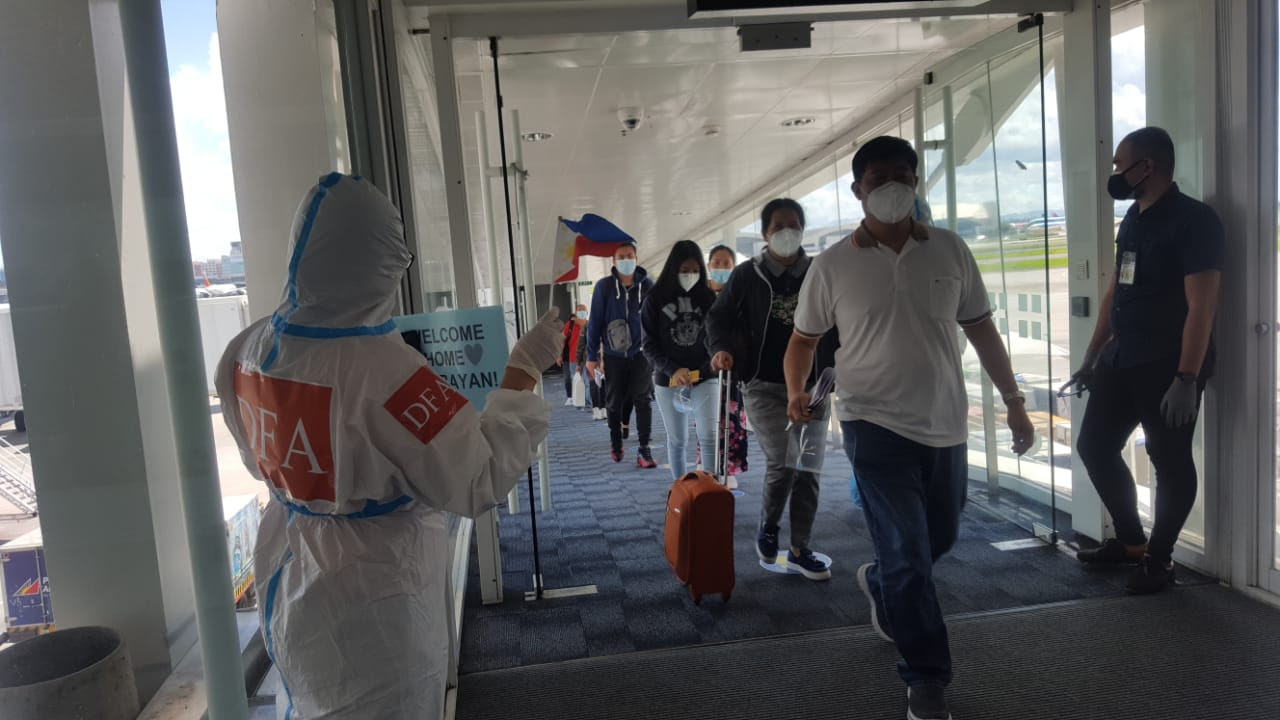More gov’t support for displaced OFWs pushed
The World Bank on Friday urged governments of countries like the Philippines to extend more financial support and vaccine coverage to returning migrant workers who were displaced due to the COVID-19 pandemic so they could build their livelihoods back home.
Citing the Philippines, India, and Vietnam, World Bank lead economist on migration and remittances Dilip Ratha told a webinar that “these countries are experiencing large return migration of their own people —they are overwhelmed, they also need support.”
In its latest migration and development brief published this month, the World Bank noted that the Philippine government had helped repatriate Filipino workers last year when their host-countries cut on jobs as they struggled to contain the COVID-19.
“The government had allocated $52 million for displaced OFWs (overseas Filipino workers), including a one-time emergency cash aid of $200 for each worker displaced by the pandemic and another $8 million in education assistance for college-level dependents of affected OFWs. This is aside from $17 million for the repatriation of OFWs, medical assistance, and return of the deceased due to the pandemic,” the World Bank noted.
Lower-skilled migrants
Moving forward, Ratha said governments also needed to ensure that migrant workers and their families would have access to vaccines to better protect them from the disease.
Ratha said vaccinating migrant workers’ households should be “part of the policy package, especially those who are in the informal sector, those who are lower-skilled migrants, and their families back home.”
Despite the recent reimposition of lockdowns in some migrant workers’ host-countries as well as their home-countries, Ratha said the shift to contactless, digital and formal remittance channels fast-tracked by the pandemic would sustain the transfer of money to their beneficiaries.
Ratha noted that last year, global remittance flows declined by only 1.6 percent compared to the prepandemic level in 2019, especially as the harder times wrought by COVID-19 forced migrant workers to send more money back home.
Remittances still growing
The World Bank expects cash remittances to grow by 2.6 percent this year, Ratha said, even as he said the recurrence of COVID-19 posed a significant downside risk to these inflows.
In 2020, the Philippines remained the world’s fourth-biggest recipient of remittances behind India, China, and Mexico, with $34.9 billion equivalent to 9.6 percent of gross domestic product.
Although 0.7-percent lower than in 2019, last year’s actual inflows beat the World Bank’s earlier expectations that remittances would decline to $33.3 billion from 2019’s $35.2 billion.
It helped that sending money to the Philippines was among the cheapest in the region.
Also, Ratha said some large host-countries posted better-than-expected economic performance despite the pandemic thanks to their counter-cyclical fiscal policies, auguring well not only to their domestic economies but also to the migrant workers they hosted.
For more news about the novel coronavirus click here.
What you need to know about Coronavirus.
For more information on COVID-19, call the DOH Hotline: (02) 86517800 local 1149/1150.
The Inquirer Foundation supports our healthcare frontliners and is still accepting cash donations to be deposited at Banco de Oro (BDO) current account #007960018860 or donate through PayMaya using this link.

